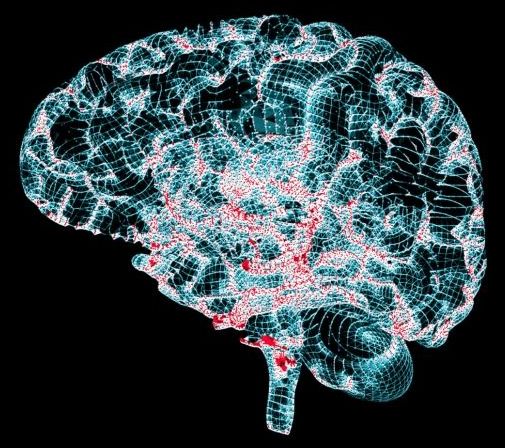Circa 2018
Research into this debilitating disease has a rocky past. Now scientists may finally be finding their footing.


The US Air Force (USAF) is expected to declare an initial operating capability (IOC) with the Raytheon Missile Systems GBU-53/B StormBreaker glide munition on the Boeing F-15E Strike Eagle multirole combat aircraft in the first half of this year, following compliance with a Required Assets Available (RAA) milestone, which is anticipated in the next few weeks.
The StormBreaker RAA is the pre-IOC benchmark capability to arm 12 USAF F-15Es with two, fully-loaded (four weapons) BRU-61/A carriage systems each for 1.5 sorties (144 assets total).
Optimised to address moving battlefield targets, StormBreaker — formerly designated ‘Small Diameter Bomb II’ — is a 250 lb-class, air-launched unpowered glide weapon system furnished with a unique tri-mode seeker, which combines millimetre wave (MMW) radar, imaging infrared (IIR), and semi-active laser (SAL) sensors with a GPS/inertial navigation system (INS) autopilot (the provider for which is undisclosed) for precision accuracy in adverse weather conditions. The seeker’s optical dome is protected by a clamshell shroud, which is jettisoned before the seeker is activated. A Rockwell Collins TacNet bi-directional dual-band datalink enables Joint Tactical Information Distribution System (JTIDS) connectivity with aircraft and an ultra-high frequency (UHF) link with a ground designator.

Experiences early in life have an impact on the brain’s biological and functional development, shows a new study by a team of neuroscientists. Its findings, which centered on changes in mice and rats, reveal how learning and memory abilities may vary, depending on the nature of individual experiences in early life.
“The implications of this are many, including environmental influences on mental health, the role of education, the significance of poverty, and the impact of social settings,” says Cristina Alberini, a professor in New York University’s Center for Neural Science and the senior author of the paper, which appears in the journal Nature Communications.
“These results also offer promise for potential therapeutic interventions,” add Alberini and Benjamin Bessières, an NYU postdoctoral researcher and the paper’s co-lead author. “By identifying critical time periods for brain development, they provide an indicator of when pharmaceutical, behavioral or other type of interventions may be most beneficial.”

Fragrance helps learning even during sleep!
Effortless learning during sleep is the dream of many people. The supportive effect of smells on learning success when presented both during learning and sleep was first proven in an extensive sleep laboratory study. Researchers at the University of Freiburg—Medical Center, the Freiburg Institute for Frontier Areas of Psychology and Mental Health (IGPP) and the Faculty of Biology at the University of Freiburg have now shown that this effect can be also achieved very easily outside the lab. For the study, pupils in two school classes learned English vocabulary—with and without scent sticks during the learning period and also at night. The students remembered the vocabulary much better with a scent. The study was published in the Nature Group’s Open Access journal Scientific Reports on 27 January 2020.
“We showed that the supportive effect of fragrances works very reliably in everyday life and can be used in a targeted way,” said study leader PD Dr. Jürgen Kornmeier, head of the Perception and Cognition Research Group at the Freiburg-based IGPP and scientist at the Department of Psychiatry and Psychotherapy at the University of Freiburg—Medical Center in Germany.
The smell of roses when learning and sleeping
For the study, first author and student teacher Franziska Neumann conducted several experiments with 54 students from two 6th grade classes of a school in southern Germany. The young participants from the test group were asked to place rose-scented incense sticks on their desks at home while learning English vocabulary and on the bedside table next to the bed at night. In another experiment, they also placed the incense sticks on the table next to them during a vocabulary test at school during an English test. The results were compared with test results in which no incense sticks were used during one or more phases.

The drug, known as DSP-1181, was created by using algorithms to sift through potential compounds, checking them against a huge database of parameters, including a patient’s genetic factors. Speaking to the BBC, Exscientia chief executive Professor Andrew Hopkins described the trials as a “key milestone in drug discovery” and noted that there are “billions” of decisions needed to find the right molecules for a drug, making their eventual creation a “huge decision.” With AI, however, “the beauty of the algorithm is that they are agnostic, so can be applied to any disease.”
We’ve already seen multiple examples of AI being used to diagnose illness and analyze patient data, so using it to engineer drug treatment is an obvious progression of its place in medicine. But the AI-created drugs do pose some pertinent questions. Will patients be comfortable taking medication designed by a machine? How will these drugs differ from those developed by humans alone? Who will make the rules for the use of AI in drug research? Hopkins and his team hope that these and myriad other questions will be explored in the trials, which will begin in March.

There’s yet another new rocket launch startup throwing its hat in the ring — Astra, an Alameda-based company that’s actually been operating in stealth mode (though relatively openly, often referred to as “Stealth Space Company”) for the past three years developing and testing its launch vehicle. Astra revealed its business model and progress to date in a new feature article with Bloomberg Businessweek, detailing how it plans to use mass production to deliver rockets quickly and cheaply for small satellite orbital delivery. Astra revealed it has raised more than $100 million from investors, including Eric Schmidt’s Innovation Endeavors, Airbus Ventures, Canann Partners and Salesforce co-founder Marc Benioff, to name a few, and it has big ambitions in terms of cost and capabilities.
Astra’s rockets are smaller than most existing launch vehicles in operation, designed to delivery up to 450 lbs of cargo to space, but with the specific mandate of doing so quickly and responsively. The company is a finalist (and the only remaining one) on DARPA’s Launch Challenge, the terms of which mandate that the winning company deploy two rockets from two different locations within a few weeks of each other. Astra is still in the running, while its erstwhile competitors have dropped out, with Virgin Orbit having voluntarily withdrawn and Vector Launch having gone out of business.
The DARPA challenge, which includes an award of $12 million for the winner, represents a growing trend in terms of defense customer needs: Fast turnaround and responsive operations for small satellite delivery. In an industry where the process of securing a launch service provider to actually flying a payload has typically taken at least six months in the best-case scenario, there’s a growing need for quicker timelines in the interest of building more redundancy and resilience into defense and reconnaissance space operations through use of networks of small satellites, versus single large geostationary satellites that are expensive to launch and more time-consuming to task.
This magnetically steerable thread could one day be used to clear blockages in your blood vessels.

In a recent IEEE Spectrum article, read how autonomous fighter jets will accompany human-piloted planes. This self-piloted airplane may be the first experiment to truly portend the end of the era of crewed warplanes. #autonomousplane #autonomousfighterjet
If you drive along the main northern road through South Australia with a good set of binoculars, you may soon be able to catch a glimpse of a strange, windowless jet, one that is about to embark on its maiden flight. It’s a prototype of the next big thing in aerial combat: a self-piloted warplane designed to work together with human-piloted aircraft.


Circa 2013
Tigers and their close relatives (Panthera) are some of the world’s most endangered species. Here we report the de novo assembly of an Amur tiger whole-genome sequence as well as the genomic sequences of a white Bengal tiger, African lion, white African lion and snow leopard. Through comparative genetic analyses of these genomes, we find genetic signatures that may reflect molecular adaptations consistent with the big cats’ hypercarnivorous diet and muscle strength. We report a snow leopard-specific genetic determinant in EGLN1 (Met39Lys39), which is likely to be associated with adaptation to high altitude. We also detect a TYR 260GA mutation likely responsible for the white lion coat colour. Tiger and cat genomes show similar repeat composition and an appreciably conserved synteny. Genomic data from the five big cats provide an invaluable resource for resolving easily identifiable phenotypes evident in very close, but distinct, species.